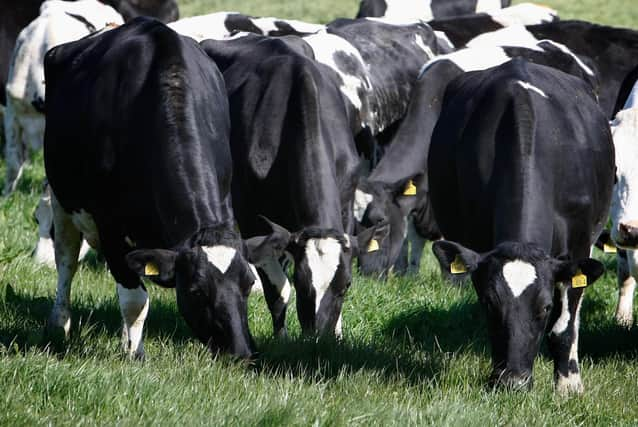COP26: Countries pledge to reduce methane


With the aim of accelerating action to limit global temperature rises to 1.5C, the Global Methane Pledge was launched as a major step towards slowing warming in the short term.
Over 100 countries have now committed to cutting methane emissions by 30% by 2030.
Advertisement
Advertisement
Methane emissions arise from natural sources and human induced activities such as oil and gas production, landfill and agricultural activities. While it is a short-lived gas, which means it remains in the atmosphere for a much shorter period of time than carbon dioxide, methane’s potential to warm the atmosphere is over 80 times greater than carbon dioxide over a 20 year period. At the launch of the Global Methane Pledge, European Commission President, Ursula von der Leyen, described reducing methane emissions as a mechanism that will “immediately slow down climate change.”
The initial focus will be on the fossil fuel industry, but agriculture will also be expected to step up to the mark.
“Agriculture is part of the climate change solution and is already playing its part. There are a range of initiatives ongoing throughout the local agri-food industry to tackle emissions and improve carbon sequestration,” according to Gill Gallagher of the Northern Ireland Grain Trade Association.
“The feed industry is acutely aware of the challenge and has been proactive in delivering tailored environmental training to ruminant feed advisers throughout Northern Ireland, equipping them with the knowledge and tools to guide farmers on best practice in reducing greenhouse gas emissions and nutrient losses. Our focus is very much on efficiency, as a more efficient farm tends to be a more profitable farm with a lower carbon footprint. Good farm management and precision nutrition are absolutely key in this respect. Maintaining a healthy rumen environment, improving herd health and fertility, whilst maximising nutrient management all lead to productivity gains and can in turn contribute to a lower carbon footprint. We can, and are, doing these things now. To go further, investment in science and innovation is urgently needed to identify cost-effective emission reducing technologies, alongside clear market signals and realistic policy direction.”
Advertisement
Advertisement
Northern Ireland is currently grappling with the unprecedented situation of two Climate Change Bills progressing through the Northern Ireland Assembly.
“We support the need for climate change legislation, but it is essential that the targets set are evidence-based having due regard for the unique circumstances of NI. The agri-food industry is the cornerstone of our economy, and we are proud to be one of the most efficient livestock producing regions in the world. It would be ludicrous to throw this away in favour of having a 2045 net zero target. We produce food for 10 million people and we do so very well - with a low carbon footprint.
“To decimate our industry and offshore this production to less carbon efficient regions would simply defeat global climate change objectives,” warned Gallagher.